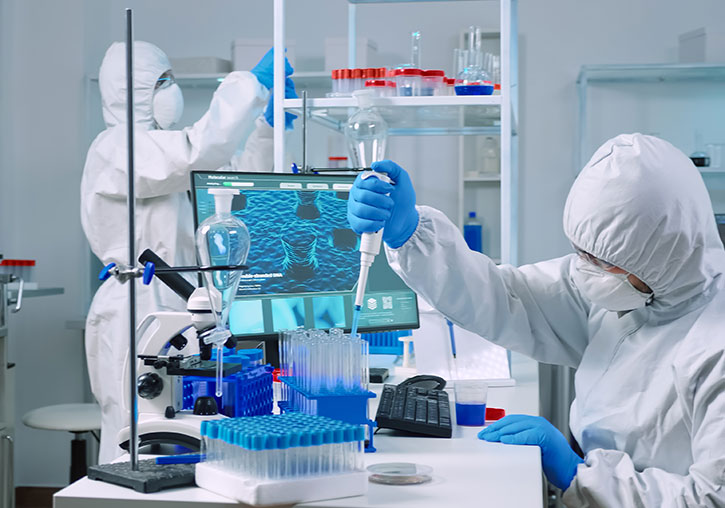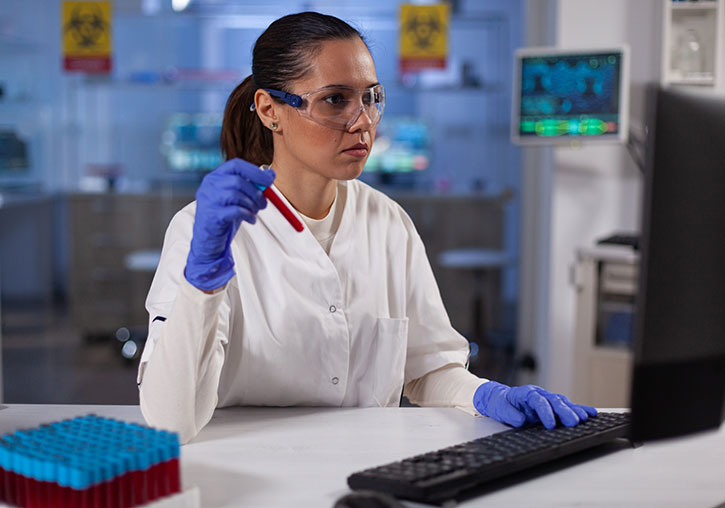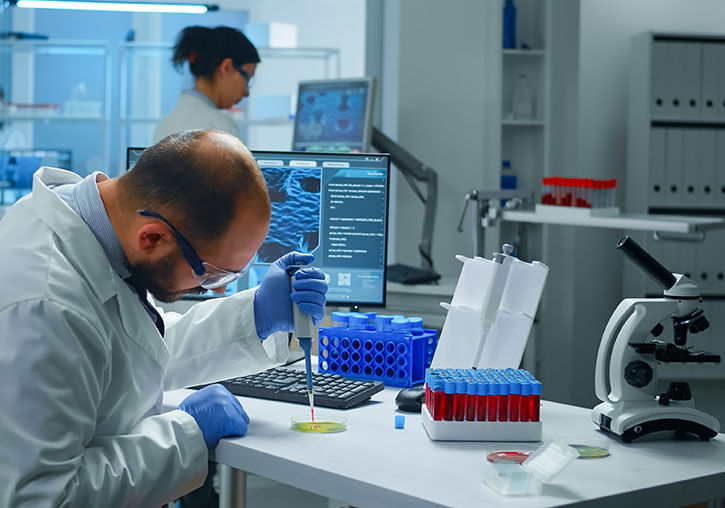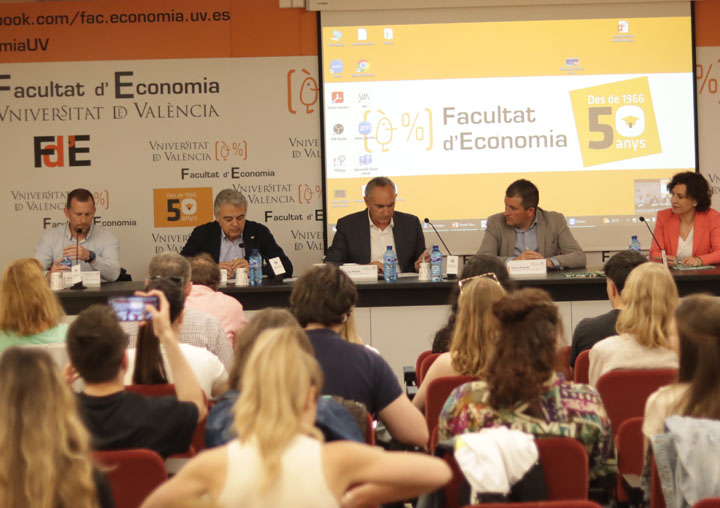Virology, a profession with a bright future
- Web and Marketing Unit
- Cristina Soriano Cabellos
- June 3rd, 2022
The Covid-19 pandemic or monkeypox have shown how a virus can affect our lives and have made the profession of virologist relevant. If you are interested in training in this discipline, the Universitat de València offers the Master's Degree in Virology. Pre-enrolment ends on June 15th.

Virology is the branch of medicine that studies viruses and other pathogens. It is a scientific discipline that was born at the end of the 19th century, when a scientist coined the term 'virus' to refer to an infectious substance affecting the tobacco plant. Since then, many viral infections have played a key role in human health, but the Covid-19 pandemic, and now monkeypox, have undoubtedly revived the profession of virology.
The Universitat de València, aware of the need to offer specialised training in the field of viruses and other pathogenic agents, offers from this academic year 2022/2023 the Master's Degree in Virology. Pre-enrolment ends on June 15th, 2022.
This master's degree of the Universitat de València presents a generalist and integrative approach, including the implications of viruses in human, animal and plant health, but also the biology, evolution and biotechnological applications of viruses.
The practical component is nowadays an essential part of virology, not only in terms of experimentation and manipulation of viruses, but also in terms of bioinformatics applied to viruses. For this reason, the master's degree will be taught exclusively in person and more than 50% of the teaching will be of a practical/experimental nature, with an extensive Master’s Degree Final Project (30 ECTS) that can be carried out in research laboratories of the Universitat de València, as well as in virology laboratories of hospitals, research centres, technology centres and companies in the sector.

Requirements for admission to the master's degree
Access to the profession of virologist requires the completion of an undergraduate degree in the area of life sciences, including Biological Sciences, Biotechnology, Biochemistry, Biomedicine, Medicine, Pharmacy, or similar qualifications.
What competences will you acquire in this master's degree?
Students will acquire a series of competences that include, among others, integrating scientific concepts close to the frontier of knowledge in virology; achieving a broad and integrated knowledge of virology that encompasses human, animal, plant and prokaryotic viruses; developing critical thinking and scientific creativity; working and analysing viral diseases from complementary approaches taking into account the structural characteristics of the virus; and developing skills to communicate scientific results.

Where can you work as a virologist?
There are many places where you can work as a virologist. Hospitals, disease control centres, laboratories, universities... within a research group or centre. In all these centres you can specialise in the study of a particular type of virus or in research into a vaccine to combat it.
Viruses are also fundamental tools in biotechnology and can be used to combat multi-resistant bacteria, in pest control and as gene vectors. For this reason, another of the professional opportunities for this master's degree are Biotechnology companies and the Industrial Biotechnology sector (pharmaceutical, food, agricultural, veterinary, environmental...).
The priority profile of the master's degree is to train researchers both for subsequent application in the university environment and in private companies or official bodies in which research work is carried out.
- Information on pre-enrolment for the 2022/2023 master's degree courses
- Web of the Master's Degree in Virology of the Universitat de València
- Information poster (pdf)
File in:















